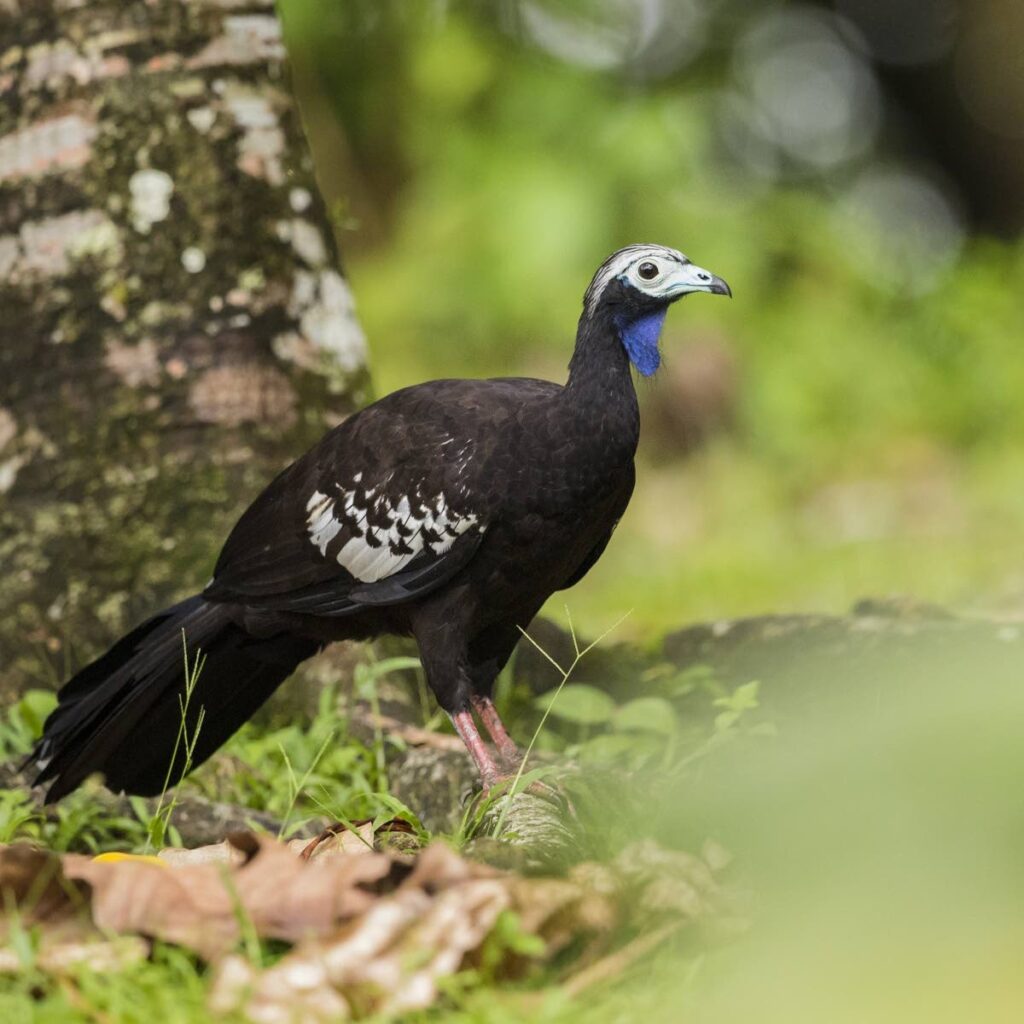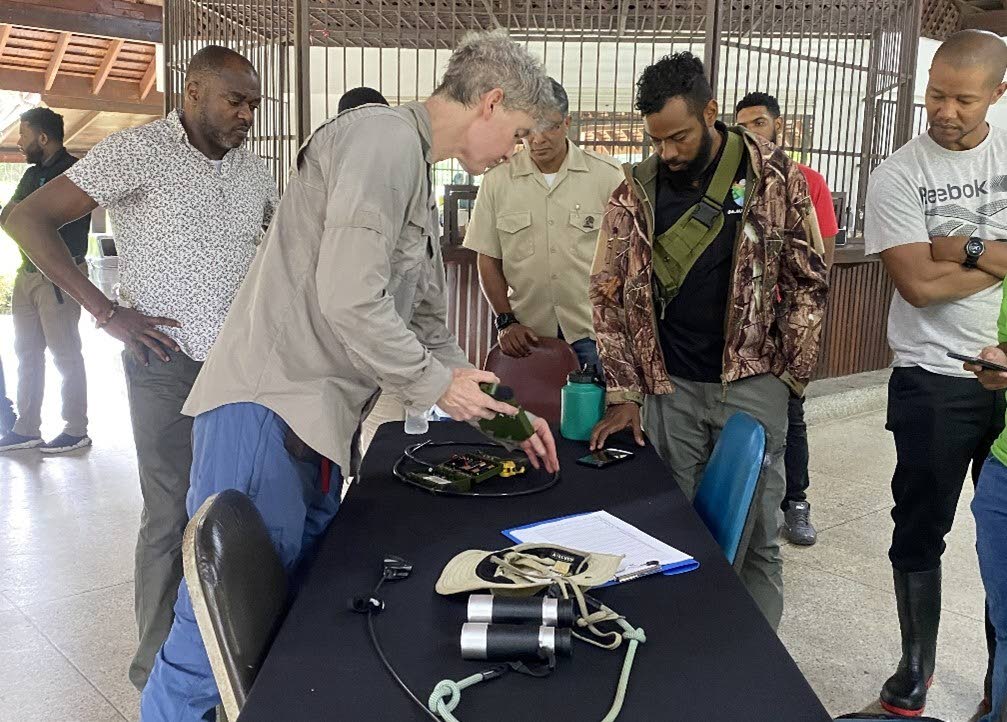EMA, UWI join forces to save the pawi

THE Environmental Management Authority (EMA) has joined forces with UWI to save the Trinidad piping guan (pawi).
The local name for the pawi is pipile pipile.
“The Trinidad piping guan, colloquially known as the “pawi,” is endemic to Trinidad and plays a vital role in the health of local forests, particularly through its seed dispersal activities,” the EMA said in a news release on February 6.
“However,” it said, “the species has faced significant population decline due to habitat loss, hunting, and environmental degradation.”
Recognised as “Critically Endangered” by the International Union for the Conservation of Nature (IUCN), the pawi has been protected under the Conservation of Wildlife Act, Chapter 67:01, since 1963.
The release said the EMA and UWI recently hosted a two-day workshop aimed at conserving the pawi and “enhancing community development and citizen science.”
Participants were trained in deploying and retrieving wildlife acoustic monitors, as well as analysing audio data through the use of artificial intelligence to identify unique bird songs and calls. Upon completion of the workshop, participants were invited to support in conducting field surveys for the pawi during the species’ peak sound activity season (January to May), which will inform the revision of the management and recovery plan.
To address the threat of its extinction, the EMA designated the pawi as an environmentally sensitive species (ESS) to enhance the conservation and protection of the pawi and its habitat.
Through this designation, a management and recovery plan for the pawi was developed in 2011, with an in-depth threat assessment and identification of priority actions to conserve the species. One of the recommendations was to study the distribution and population size of the pawi across known and potential habitats.

While significant progress has been made, persistent knowledge gaps and emerging threats continue to challenge national conservation efforts.
Therefore, the revision of the management plan, and the updating of the pawi’s distribution data are the next steps for securing the long-term survival of the species.
As part of this process, the EMA and UWI have commenced a Public Sector Investment Programme (PSIP) project titled "The Revision of Priority Actions of the Management and Recovery Plan for the Pawi (Pipile pipile), An ESS.”
This project focuses on addressing emerging threats and filling knowledge gaps related to the species’ population distribution and conservation needs.
It is through this initiative that the two-day training workshop was successfully held at the Caroni Swamp Visitor Centre.
The workshop brought together a range of stakeholders from various sectors involved in biodiversity management.
“By fostering collaboration across various sectors, this PSIP project aims to build long-term sustainable conservation practices for the pawi at the community level, strengthening the local monitoring capacity, and ensuring that the pawi’s protection continues beyond the conclusion of the PSIP project," the EMA said in its release.

Comments
"EMA, UWI join forces to save the pawi"